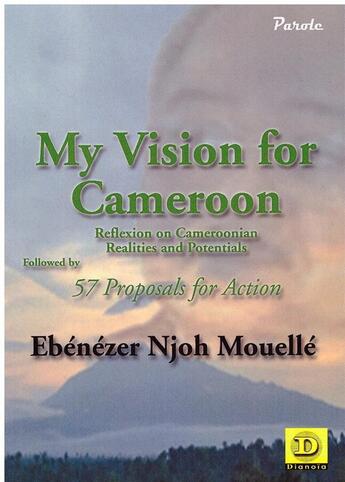-
Date de parution : 21/01/2022
-
Editeur :
Dianoia
-
EAN : 9782373690279
-
Série :
(-)
-
Support :
Papier
Résumé:
The guiding principle is found in the sub-title: Reflection on Cameroonian Realities and Potential. After a glimpse at the history of the country by highlighting the fact that Cameroon was never a statutory colony, the author invites his compatriots to remain the patriots that their ancestors... Voir plus
The guiding principle is found in the sub-title: Reflection on Cameroonian Realities and Potential. After a glimpse at the history of the country by highlighting the fact that Cameroon was never a statutory colony, the author invites his compatriots to remain the patriots that their ancestors had been. At the cross-roads of the past and the present, the author sketches a moral portrait of the Cameroonian who is paradoxically torn between the sentiment of ethnic rootedness and the project of the creation of a new ethnic group called the Cameroonian nation. The first chapter «Cameroon as an Idea: Ethnic groups and the Nation-State» is devoted to this project. «State Power» is called upon to be pedagogic, the object of chapter II which proposes important reforms not only in the action of building the nation by mobilising sufficient means to take the common good into account over ethnic interests, but also in a more democratic balance of the executive and legislative powers. In the third chapter entitled «The Development Front» the absence of an ambitious vision of projects, the under-exploitation of the country's intellectual potential as well as its natural resources is heavily deplored. The demand for the celebration of excellence is presented through education and scientific research in particular. The same demand is made concerning the bilingual character of the country, called, not to remain merely formal, but rather to evolve towards a multilingualism susceptible of fostering the emergence of private cultural enterprises granting crash courses in the different languages used in the UN system and for a greater presence of Cameroon on the international scene.
The book ends with a synthesis with 57 propositions for action, constitutive of the Annexe II, the Annex I havening been devoted to the distinctive marks of the Cameroonian identity.
Donner votre avis
















